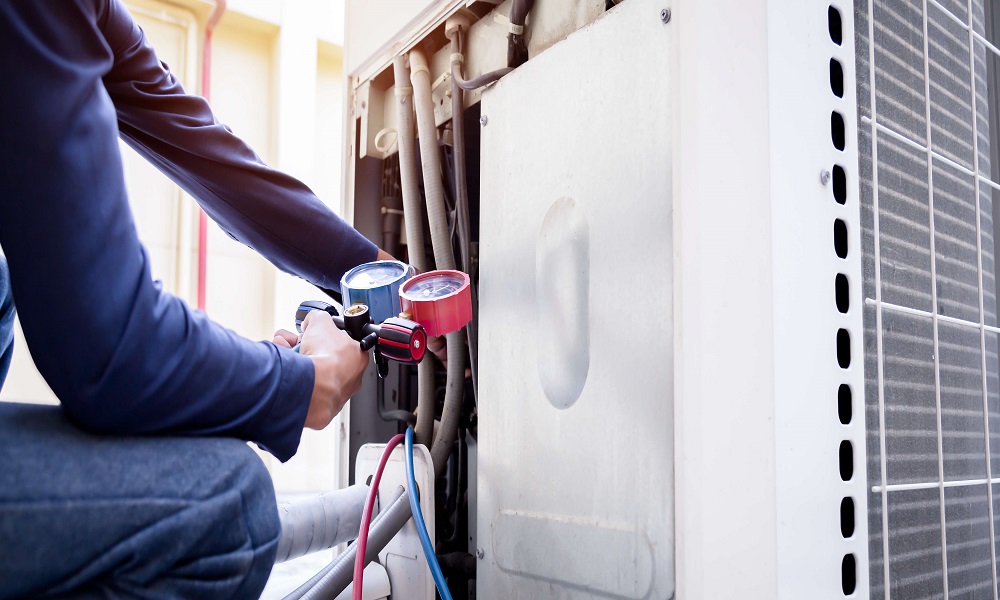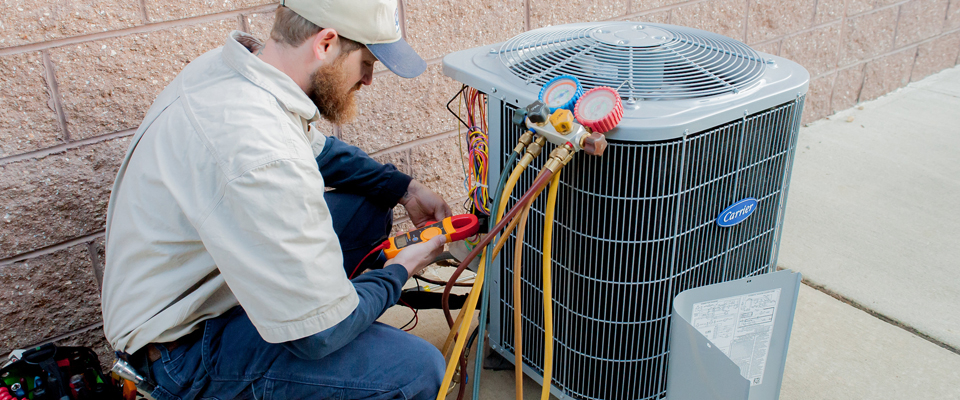Energy-Efficient Cooling And Heating Systems to Minimize Energy Costs
As power prices remain to climb, the relevance of energy-efficient HVAC systems becomes significantly obvious. These systems not only promise significant savings on utility costs yet likewise add to a much more sustainable future by reducing energy intake. With numerous alternatives offered, including geothermal heat pumps and ductless mini-splits, residential property proprietors deal with a wide range of choices that can enhance convenience and air high quality. Understanding the key attributes and maintenance requirements is crucial to optimizing these advantages. What aspects should be prioritized when picking the best system for your requirements?
Advantages of Energy-Efficient Heating And Cooling Equipments
Energy-efficient a/c systems offer various benefits that prolong past mere price savings. One considerable advantage is the reduced environmental impact. By taking in much less energy, these systems contribute to reduce greenhouse gas emissions, assisting to battle climate modification and advertise sustainability. This aligns with enhancing social needs for environmentally friendly practices in residential and commercial settings.
In addition, energy-efficient a/c systems commonly give boosted comfort degrees. A number of these systems include innovative modern technology that allows for better temperature control and improved air quality (DMAKS HVAC). This results in a healthier interior atmosphere, which is especially crucial for people with allergies or respiratory system concerns
In addition, spending in energy-efficient cooling and heating systems can improve home value. As more customers focus on energy effectiveness, homes and buildings geared up with these systems may bring in greater bids in the real estate market.
Sorts Of Energy-Efficient Cooling And Heating Options
Just how can house owners and organizations choose one of the most ideal energy-efficient cooling and heating alternatives for their needs? The market uses a variety of energy-efficient a/c systems, each created to enhance convenience while lessening energy usage.
One choice is the variable cooling agent circulation (VRF) system, which efficiently regulates the temperature in several areas within a building. This system adjusts its cooling agent flow to match the desired temperature level, causing significant energy savings.
Another popular choice is geothermal heatpump, which use the planet's secure temperature level to heat and cool areas. By transferring warm to and from the ground, these systems show remarkable effectiveness, particularly in modest climates.
Furthermore, ductless mini-split systems provide an energy-efficient choice for homes lacking ductwork. These systems allow for zone-specific home heating and air conditioning, decreasing power waste in vacant areas.
Finally, high-efficiency furnaces and a/c unit, with innovative SEER and AFUE rankings, offer trusted climate control while taking in much less power than conventional versions. By evaluating these alternatives, house owners and organizations can select a cooling and heating system tailored to their certain needs and energy effectiveness objectives.
Trick Functions to Think About

Following, explore the sort of compressor used in the system. DMAKS HVAC. Variable-speed compressors can readjust their output directory to match the home heating or cooling demand, bring about enhanced convenience and energy savings compared to single-speed designs. Additionally, look for systems furnished with clever thermostats that supply programmable settings and remote gain access to, enabling much better control over power consumption
Another vital function is the system's air filtering ability. High-efficiency filters can boost interior air top quality and lower power consumption by guaranteeing the system operates efficiently. Furthermore, consider the type of cooling agent made use of; modern-day systems usually employ environmentally friendly refrigerants that have a lower ecological influence.
Last but not least, make certain that the system works with zoning technology, which permits for tailored temperature control in different locations of your home, improving comfort while reducing power use.
Tips for Choosing the Right System


Next, consider power efficiency ratings, particularly the Seasonal Energy Performance Proportion (SEER) for cooling down systems and the Annual Fuel Application Efficiency (AFUE) for heating systems. Greater ratings suggest higher efficiency, which can lead to considerable financial savings on utility bills with time.
Furthermore, assess the kind of cooling and heating system that finest suits your way of living and budget plan. Options consist of air conditioning, ductless mini-splits, and heatpump, each with its own collection of advantages and downsides.
Do not forget the value of proper installment and sizing; an improperly sized system can lead to inadequacies and boosted wear. Lastly, talk to a professional cooling and heating contractor to get professional referrals tailored to your home's special requirements. This detailed strategy will guarantee that you choose an energy-efficient HVAC system that fulfills your needs and budget plan successfully.
Upkeep for Optimal Effectiveness
As soon as the right heating and cooling system is in area, recurring maintenance ends up being crucial to making certain optimum efficiency and longevity. A well-kept system runs better, resulting in reduced power consumption and decreased utility costs. Routine inspections and tune-ups ought to be arranged at the very least two times a year-- once before the air conditioning season and as soon as prior to the heating season.

Home owners must also be attentive about checking their heating and cooling system's efficiency. Unusual sounds, fluctuating temperature levels, or increased power costs can suggest underlying concerns that call for immediate focus. By resolving these issues without delay, homeowners can avoid pricey repairs and prolong the life-span of their systems.
Purchasing a maintenance plan with a certified specialist not just boosts efficiency however likewise gives peace of mind, knowing that the system is operating at its finest. DMAKS HVAC. Normal upkeep is therefore vital for maintaining power performance and reducing total operational expenses
Final Thought
To conclude, energy-efficient HVAC systems present a sensible solution for decreasing utility bills while improving comfort and air high quality. By incorporating sophisticated innovations and choices such as geothermal heatpump and ductless mini-splits, homeowner can attain substantial energy cost savings and add to ecological sustainability. Mindful factor to consider of system attributes and continuous upkeep further makes certain optimum efficiency, making energy-efficient systems a sensible investment for both economic and environmental benefits.